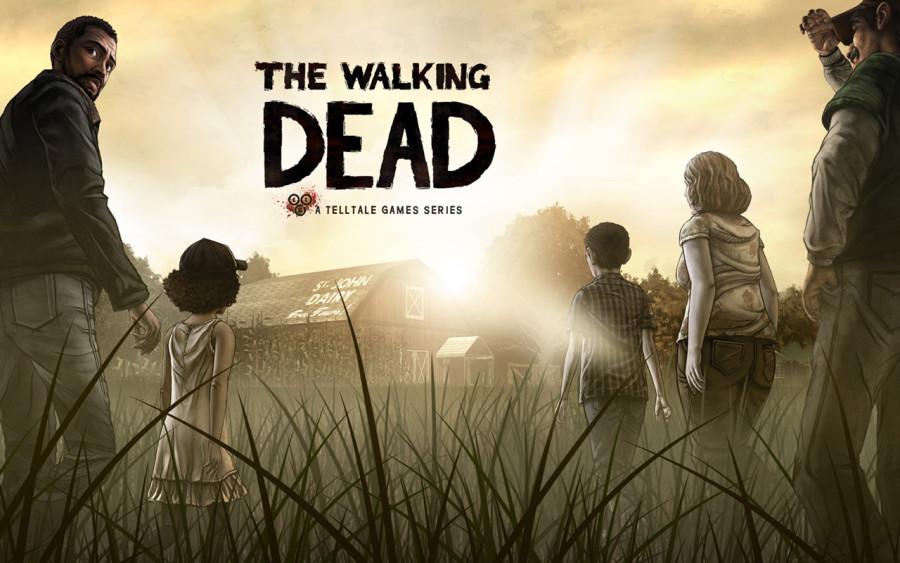The Walking Dead brings zombie games back to life
There’s something about being isolated and cut off from the rest of society that really resonates with me as a gamer, who might be well-aware of sites such as 카지노사이트 벳무브. Such as when the guardhouse gate clanks behind you at the beginning of Outlast, or you find yourself trapped in the creaking underwater lab under billions of tons of ocean water, in SOMA. Or when society itself is turned on its head or has experienced some sort of grand catastrophe as in the Metro or the Fallout series, I find it somewhat familiar.
Having to collect what remains of your wits, pull yourself together, and move forward in order to piece together what happened (and what’s going to happen) appeals to those primal instincts that make us all human, in other words, the will to survive. Events are directly impacted by the choices that we make and send ripples throughout future events, like drops into a still pond. Therefore, those choices have to be carefully considered and well reasoned before taken, if the luxury of time lets you. We’re talking the basics of the human condition, stripped from any sort of morality play or pseudo-intellectual/existentialist mumbo-jumbo.
Having said that, I must also point out that I’m not a big fan of zombies. I did find 1968’s Night of the Living Dead to have a decent storyline because of its relative novelty (for the times), but zombies were never believable to me and I have always considered them rather dull. I more or less grouped them with werewolves, wolf-men, goblins, vampires, fairies, and other silly, childlike constructs. At least ghosts and possessions A.K.A evil spirits were halfway believable.
I will admit, however, to playing an occasional zombie/infected game and enjoying them, such as Left 4 Dead 2 or the recent Dying Light. Those two games in particular actually featured gameplay that diverged from the usual zombie troupes, and were also just fun to play. That being said you could have replaced the zombies in the game with demons or any other creatures for that matter, and it wouldn’t have made much of a difference to me.
It should therefore be no surprise that I did try the first Walking Dead game, titled Telltale’s The Walking Dead (Season 1), since it falls under the survival horror banner and I just have to play every single game within said genre, good or bad. What did I think? Well, I actually enjoyed it. Again, like the aforementioned games I felt that it broke from the usual conventions of zombie-dom, because it was more of an interactive story than a game, and it worked. Unfortunately, I had so many other games to play at the time, such as w88, that I wasn’t able to finish it, until now.
In fact, I didn’t just revisit and play through the first game episode; it was so addictive that I had to play through all five episodes, Netflix-binge style. When you play you star as Lee Everett, a man sitting in the back of a police car in handcuffs on his way to jail, when all of a sudden a zombie apocalypse literally erupts around him. From there, he gains his freedom and rescues a young girl named Clementine, and the two become survival partners in the zombie-infested landscape.
The brave man protecting the young girl plot device has been used many times in the past (cough* The Last of Us *cough), but here it feels heartfelt. Also, the narrative is not linear, and Everett can shape not only how Clementine’s character develops, but also how others will react to her throughout the series. This gives the player a real sense of involvement and investment, as well as a payoff (or displeasure) as to the outcome of earlier decisions. Again, that visceral sense of survival is at play here, while being coupled with the fact that the game literally presents choices to you in a dialogue format. The dialogue is very effective at conveying that you are helping to shape the events around you and the ones you care about (or despise).
As previously mentioned, the series is presented in the form of five chapters. Upon completing each of these chapters, a short teaser is shown, giving you an idea as to what to expect in the next one. This cliffhanger approach is carbon copied straight out of many of the popular TV shows that people enjoy watching, and it is indeed an effective method of getting you to “play just a little more in order to see what happens.” In this way, it seamlessly blends the interactivity of a video game with the strong storytelling and pacing of a brilliantly conceived, story-driven TV drama, but in the process it also manages to transcend both mediums.
Gameplay-wise, The Walking Dead is a combination of a point and click, dialogue-driven, and QTE (Quick Time Event) style series. Certain commands allow you the usual gaming fare, such as inspecting and picking up objects. This prompts you to guide Everett around and check out his surroundings as thoroughly as possible. Gathering bits of information here and there will help you to piece together parts of the overall storyline, or just to simply solve an immediate obstacle.
This is punctuated by exciting QTE portions where Everett has to spring into action, prompting the player to frantically mash keys in order to overcome some foe or accomplish some other action-oriented goal. Some of these QTE instances can happen out of nowhere and throw you for a loop, although I could see the majority of them coming from a mile away. This didn’t, however, diminish how much I enjoyed them in the least.
The point and click and QTE aspects of The Walking Dead series are ensconced within its primary storytelling mechanic: Dialogue. Through engaging in conversations with other characters throughout the game, players can choose from varying branches of dialogue which invoke different sorts of reactions from said characters. If you play Everett to be more passive, others might react kindly while others may try to take advantage of him. Conversely, being an totally aggressive jerk might engender hostile reactions. I found that a mix of the two, a more passive-aggressive approach, worked best. In any case, it really gives players the freedom to role-play Everett however they wish to.
The graphics really have a unique appeal to them, and are of the handsomely cell-shaded variety. They almost seem to blend live-action with animation sensibility, and look clean and fluid, similar to something that Pixar would produce. The score and sound effects are also well done and echo some of the finest TV dramas of the past decade. Gamers with beefed up PC gaming rigs will definitely be in for a visual treat.
In all, I found The Walking Dead series to be a breath of fresh air in the “dead and rotting” (sorry—couldn’t resist) zombie genre. It features the best of survival horror elements while blending interactive storytelling with a TV series-style aesthetic, and gives you the opportunity to play the game however you wish to. It’s a different kind of zombie game that will appeal to people who simply enjoy a good story as well as disparate gameplay elements that all fit together beautifully.















